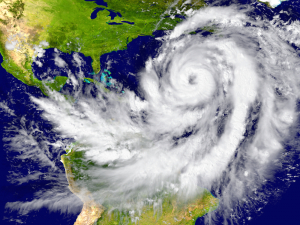Hurricane Season Remains Mild, but Risk Remains

As the Gulf Coast observes the 10th anniversary of Hurricane Katrina, one of the deadliest hurricanes to touch US soil, we are reminded of the destructive power of mother nature and the need to prepare for the worst—even when experts say there’s little chance for a major storm.
Forecasters predicted the 2015 hurricane season would be mild, with fewer named storms than the historical average. So far those predictions have been correct. In May, NOAA researchers said there was a 70 percent chance this season would produce fewer named storms than the average. Now, as hurricane season approaches its peak, that number was raised to 90 percent.
Experts agree that the probability of a major storm is down this year, but they also agree that people living along the Atlantic and Gulf coasts can’t afford to become complacent.
Even when ocean conditions aren’t good for hurricanes, powerful storms can still develop. It only takes one to cause billions of dollars of damage. Since 1978, there has been a recorded $43 billion in flood damage in the United States. Over half of that damage came from just two storms in the last 10 years: Hurricane Katrina in 2005 and Hurricane Sandy in 2012.
Between 1978 and 2000, the total of flood insurance claims in the U.S. averaged about $500 million a year. Only in one year did it exceed $1 billion. Since 2001, that payout has jumped to an average of nearly $3 billion a year.
As sea levels rise, so does the risk of flooding in coastal communities. In New York City, for example, storms that bring the risk of flooding are twice as likely today than they were in the mid-20th century.
The NOAA forecast in May called for six to 11 tropical storms. Three to six of these are predicted to become hurricanes, and two could develop into large storms with winds above 111 miles per hour. The numbers may be down this year, but the overall trend still suggests more deadly hurricanes more often.
At AWWT we’re prepared to help support local governments and business owners weather any kind of storm with a variety of wastewater treatment options. For more information visit us at www.awwtinc.com.
The Clear H2O Method

Assess
AWWT conducts preliminary assessments of your systems, facility, and processes to determine productive methods for wastewater removal, management, and treatment.

Control
Through a patented technology, AWWT will implement the most effective treatments based on our investigatory findings and your wastewater management needs.

Safeguard
Collectively we will achieve and maintain “green and clean” solutions through protection and management planning of your future wastewater treatment methods.
Read blog

"San Francisco Wants To Lead The Future In Water And Wastewater Resources"
Few organizations are in a better position to affect our approach to c...Read More >>

"Harvey Leaves Challenges In Texas, From Drinking Water To Rent Payments"
Harvey is finally out of the picture — but the storm's dev...Read More >>

"The Water Cycle"
Earth's water is always in movement, and the natural water cycle, also...Read More >>
